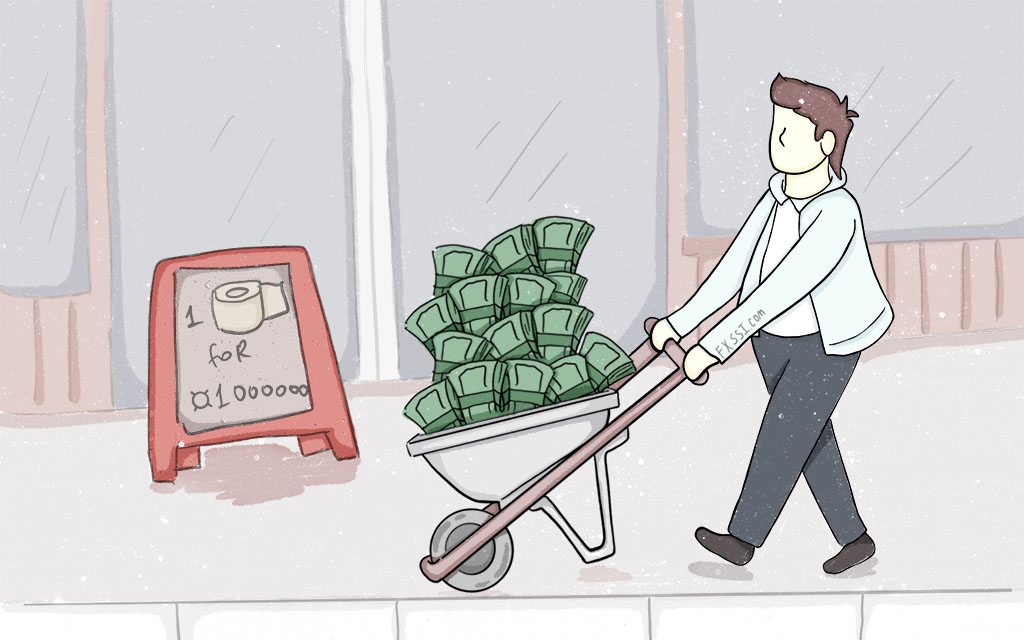RIO DE JANEIRO, BRAZIL – Take the annual budget of an oil-producing country and keep it in local currency untouched. Wait 14 years, and that money, then equivalent to 50 billion dollars, will be worth 25 cents on the dollar. Unlikely? It has happened in Venezuela.
This Friday, October 1, a monetary reconversion takes effect in Venezuela, which will remove zeros from its destroyed currency, the bolivar, for the third time since 2008. This time six zeros will be eliminated, bringing the total to 14 in only 13 years.
Read also: Check out our coverage on Venezuela
One million bolivars, about 25 cents of a US dollar but insufficient to buy a loaf of bread, will bcome one bolivar… and that bolivar, in turn, represents 100 billion bolivars from 2007, reflecting an incredible erosion: the national budget of that year reached 115 billion bolivars, which was then more than 50 billion dollars.

DILUTED SALARIES
Salaries, along the way, dissolved. “We receive, biweekly, less than three dollars,” Marelys Guerrero, a 43-year-old teacher who receives millions that are worth nothing, tells AFP.
In practice, people made an informal conversion, and it is customary to speak of thousands instead of millions.
The outgoing currency, which has the 1 million bill as its ceiling, will coexist for a few months with the new one and its denominations: a one bolivar coin and bills of 5, 10, 20, 50, and 100 bolivars.
Marelys is afraid of rounding. If something remains at 4.5 after the reconversion, “it is not going to cost 4.5, but 5,” says this woman in a store in Chacaito, a commercial area of Caracas.
With Venezuelans trying to protect themselves from the highest inflation in the world, projected at 1,600% for this year by the private firm Ecoanalítica, the dollar has displaced the bolivar, and more than two-thirds of transactions in Venezuela are made in that currency, according to private estimates.
The situation has led to a chronic cash shortage and relegated the bolivar to debit card transactions and bank transfers. The little cash in circulation is used in public transportation.
President Nicolás Maduro speaks of a “digital bolívar”, calling for the total “digitalization” of payments.
That idea is a surrender, says Luis Arturo Bárcenas of Ecoanalítica. “There is surely not going to be enough cash (…). You are acknowledging that you cannot issue all the bolivar bills you require,” explains this economist.
Banking systems will be paralyzed on Thursday night, September 30, for technical adjustments.
NEVER-ENDING ZEROS
While Marelys fears new inflationary jumps, working with six fewer zeros comforts accountant Rodrigo Bermudez.
“It’s a relief for us,” says Bermúdez, who shows AFP an invoice in which he has to divide a charge into four parts to include it in the accounting systems used in his company. The figures are endless. Illegible.
“The number of digits was making everything very cumbersome,” he adds.
Reconversions were common in Latin America, especially during hyperinflation in countries like Argentina, Brazil, or Peru in the 1980s and 1990s. Argentina even created another currency, the austral, which later disappeared to return to the peso.
Although Maduro restricted public spending and limited credit, practically disappearing, prices continue to rise, even in dollars.
“If one expects inflation to behave as it has in recent months, it is very likely that in about three or four years, the government will have to reconvert again,” warns Bárcenas.
This reconversion comes only three years after the previous one, in 2018, which eliminated five zeros from the bolivar.
“I’ll buy you your dollar!” shout young people with thick bundles of bolivar bills at a bus stop in a dormitory town near Caracas. Faced with the lack of cash, the buses and bus stops are traveling exchange houses.
“We pay four million for dollars. The fare costs two million,” says William Hernandez, a 56-year-old bus driver.
After the dollar was banned from the streets for 15 years, the image became a daily occurrence by an exchange control established by the late Hugo Chavez in 2003. Although it still exists, this mechanism was later relaxed due to the collapse of income resulting from the collapse of the Venezuelan oil industry and international sanctions against the country.
Maduro qualifies informal dollarization as “an escape valve”.
Source: AFP

